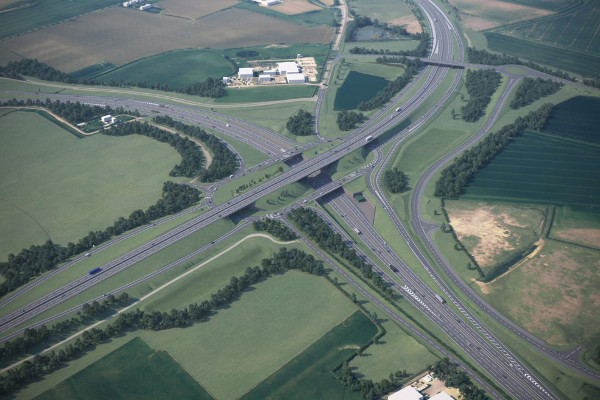MPs have warned that the Government's proposed new national policy statement for road and rail infrastructure will not solve the issues around legal challenges on climate grounds.
The Transport Select Committee urged ministers to rewrite sections of the draft National Networks National Policy Statement (NNNPS) that would be used to determine whether major new projects are compatible with net zero legislation.
MPs warned that in its current form the draft NNNPS will not achieve the Government’s aim of avoiding the types of legal challenge that have delayed many new projects by clarifying how planning policies would interact with climate legislation.
Campaigners and industry groups told MPs the draft NNNPS fails to adequately set out how new infrastructure projects should be assessed based on the emissions they will produce.
This could lead to challenges to development consent orders (DCOs) as the Government would be unable to explain how a DCO would align with legally binding net zero goals.

National Highways' A428 Black Cat scheme has faced a legal challenge
Committee chair Iain Stewart MP said: ‘Flaws in the current NNNPS are partly to blame for the perennial problem of why major infrastructure projects become delayed by legal challenges, so there is a lot riding on this work to produce a new set of planning policies.
‘But a number of witnesses, including some who themselves launched legal challenges against such projects, told us the current draft won’t provide the legal certainty that DfT needs. One of the Government’s objectives in revising the NNNPS is to balance the net zero goals with infrastructure projects that could increase greenhouse gas emissions.'
The Committee also recommended that the Department for Transport (DfT) should be more transparent about how it judges the need for major new infrastructure projects.
Witnesses argued that the DfT is overly led by a predict and provide approach, and plans new road projects based on forecasts that congestion will increase, with insufficient transparency as to how demand calculations are made or how the DfT models alternative options such as rail connections.
MPs said the DfT should publish its National Transport Model so it can be independently tested and verified.
It should also model and report on a wider range of scenarios where traffic levels on the strategic road network are reduced or maintained at current levels and ambition for rail use is increased, the committee members said.